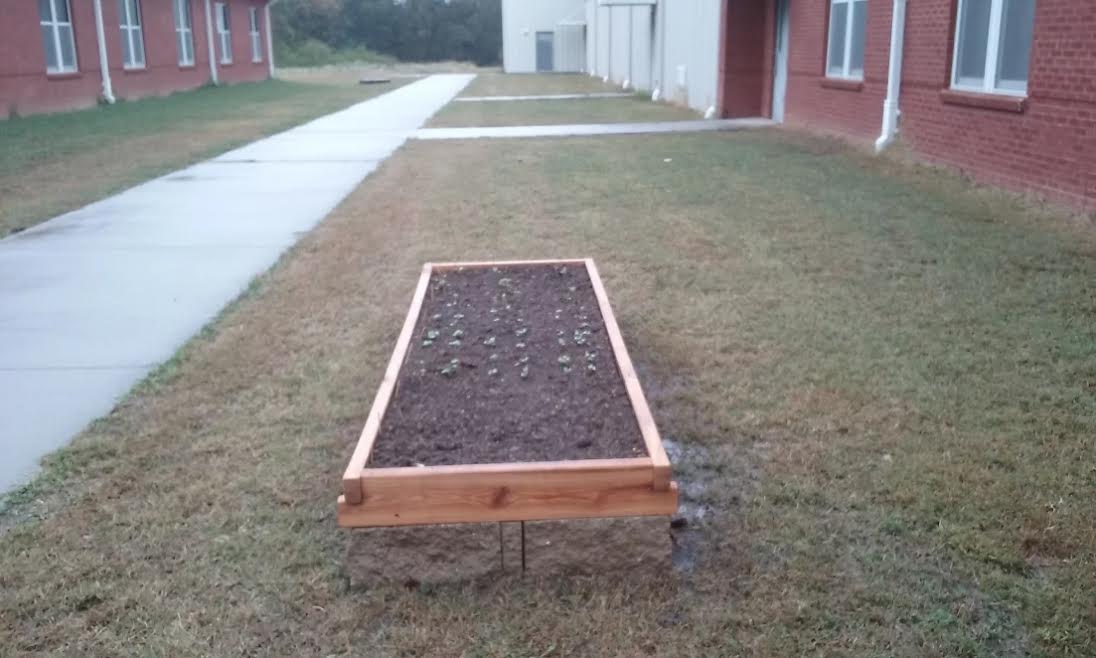The original raised bed, shortly after its completion in 2015.
LOGAN – Lea Scott is the librarian and eighth-grade history teacher at Harmony School (HS) in Logan. Not all her educational endeavors keep her cooped up inside, though. She also manages Harmony's "outdoor classroom."
HS is a member of the Alabama Wildlife Federation's Alabama Outdoor Classroom Program, which is dedicated to creating hands-on learning opportunities for students outside the regular classroom. Utilizing designated sites on school property, the program helps schools create a variety of means to study the natural world: wildlife habitats (turtles, lizards, birds, insects and others; even worms!) and wildlife tracking, a variety of gardens, weather stations and others.
In the case of HS, the outdoor classroom is currently a collection of four raised-bed gardens. The raising of the beds above ground level allows gardeners easier control over the content of their soil, as well as protects the beds from lawn mowers and weed trimmers. The first was built in 2015 through a Vistacorp grant procured by Rachel Wiser of the North Alabama Agriplex in Cullman; the other three have been recently added.
Scott also notes the assistance of Cullman Master Gardeners in the development of the project at the school, and added, "We have also been blessed to have parents and other community members volunteer and donate money and other items to use in the garden."
Scott explains that this garden's purpose is to "expose children to the benefits of gardening as well as hands-on science activities that correlate to state education standards and curriculum."
The primary focus group for garden activities is currently the second grade, but all students at the combined elementary and middle school have had opportunities to participate. So far they have used two of the beds as vegetable gardens, and the other two were planted with plants to attract butterflies. The raising of the beds above ground level allows gardeners easier control over the content of their soil
The drought this year took a toll on the garden, but Scott isn't deterred. With additional grants, she is planning an expansion of the project. Starting with a community workday this coming spring, she first plans to construct a pollinator garden that will be filled with flowers to provide nectar for creatures that help pollinate plants: bees, butterflies and hummingbirds. A strawberry tower (vertical garden) is also in the works.
Down the road, the project gets really ambitious.
Scott predicts, "We have plans for a songbird sanctuary; a sensory garden, which will include plants which the students can touch and smell; a log decomposition station that will provide habitat for insects; a weather station; a worm bin; and a turtle habitat."
She is excited about what the garden means for HS students.
She said, "A lot of kids now are not doing a lot of things outdoors. This gives them an opportunity to get out and do something, and opportunity to see where their food comes from, and an opportunity for some hands-on science."
For more information about the Alabama Outdoor Classroom Program, including contact information to get in touch with Harmony School, visit the website https://www.alabamawildlife.org/outdoor-classroom-program/.



























